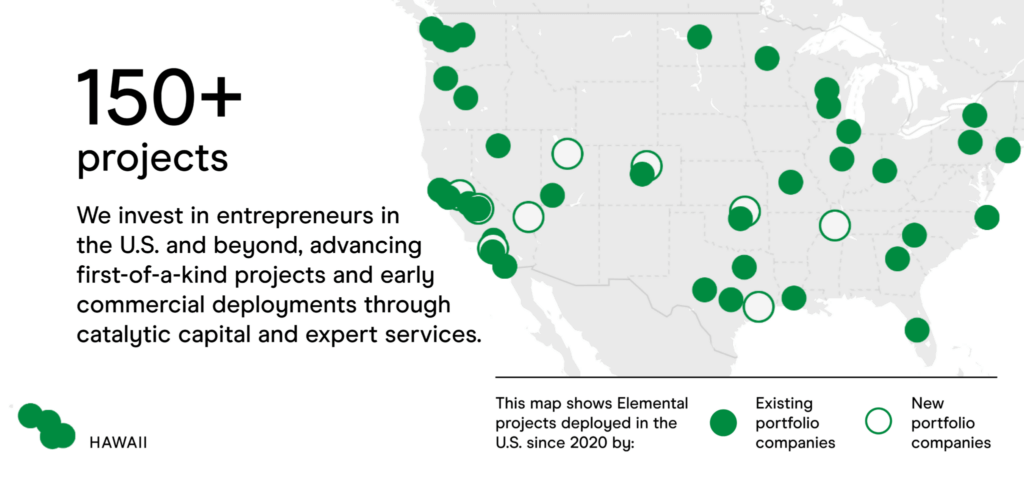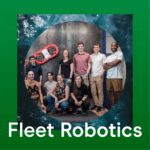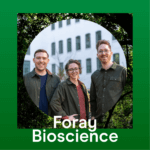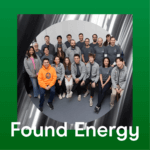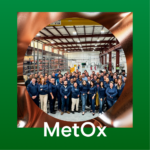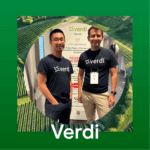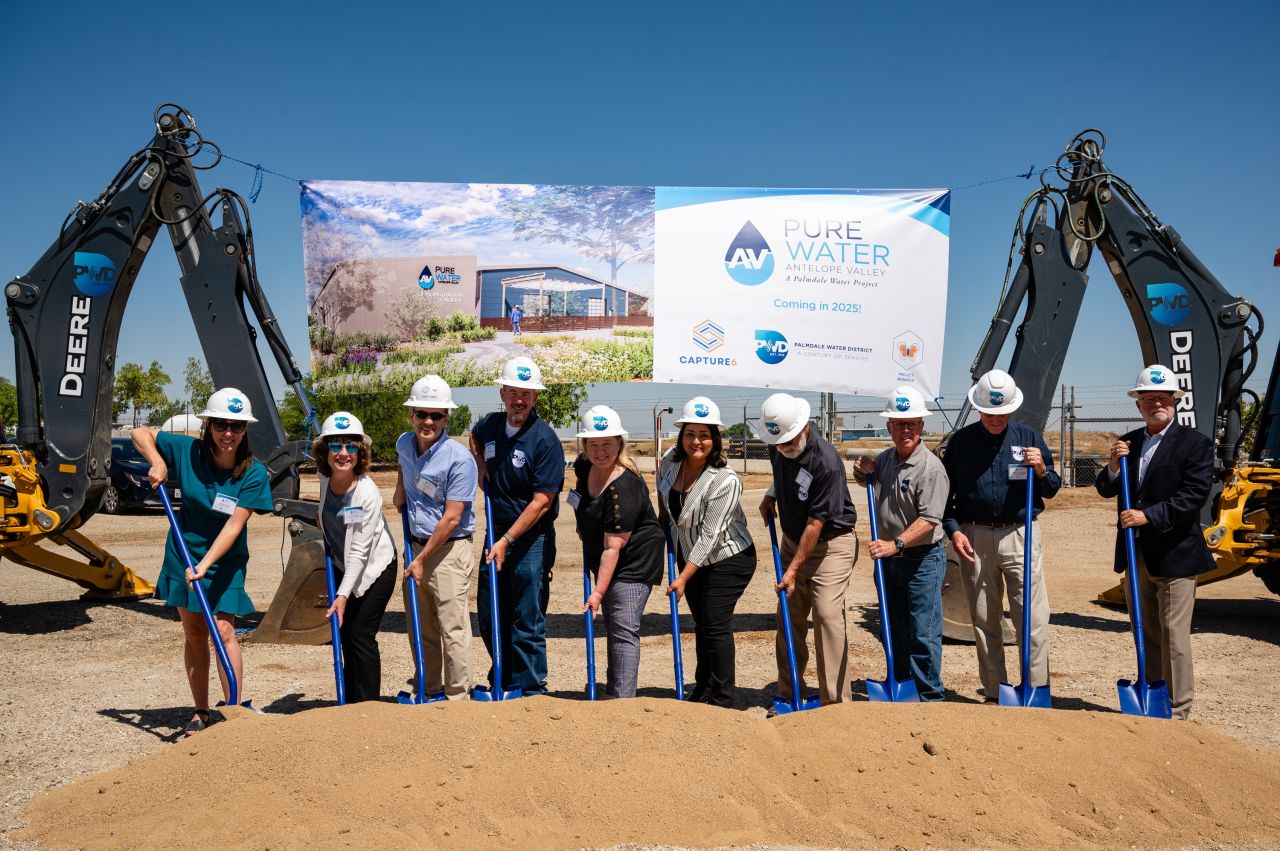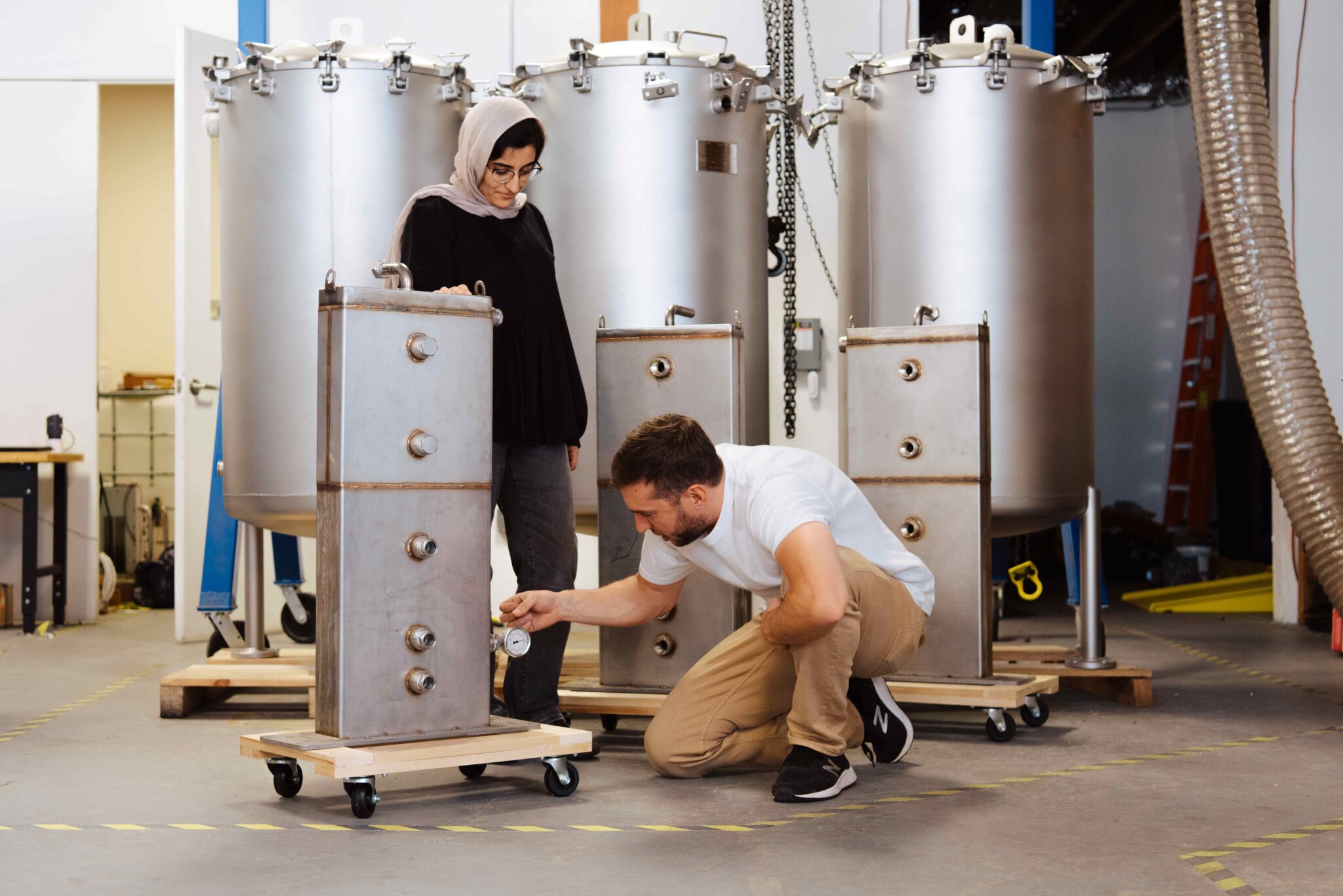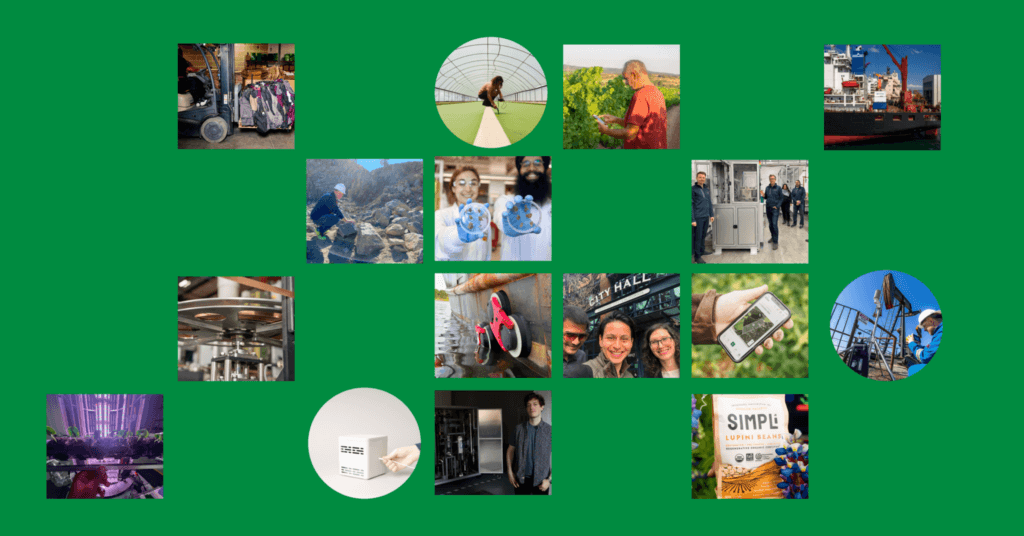
Today we are pleased to share $18.6 million in new investments across 16 companies deploying projects around the world and across the U.S. in states such as Colorado, Nevada, Oklahoma, Tennessee, and Texas.
These investments represent the next chapter in our mission to tackle the $150B “Scale Gap” – a significant funding shortfall entrepreneurs face during first-of-a-kind (FOAK) and early-stage commercial deployments. We bridge this gap through providing catalytic capital, deep project expertise, and meaningful community partnership.
After vetting more than 700 companies, we invested in 16 across four themes:
- Accelerating the next era of U.S. manufacturing
- Building a resilient supply chain
- Strengthening local impact
- Scaling a regenerative food system
These entrepreneurs join our portfolio of more than 160 companies that have collectively created over 10,000 jobs and are delivering real benefits in local communities. These new investments demonstrate the power of philanthropy to enable projects in communities across the U.S. and beyond — and unlock significant private investment.
Meet the companies
Artyc | Battery-powered thermal fridges for cold chain logistics
Artyc’s portable fridges use battery-powered cooling technology to improve the accessibility of diagnostics and medical products, especially in remote areas. Traditional cold chain logistics rely on labor-intensive and resource-heavy methods like refrigerated trucks and complex cold packs, and are unable to provide visibility into conditions occurring along the cold chain. In contrast, Artyc’s Medstow fridges, equipped with precise temperature regulation and real-time tracking, offer a reusable, efficient alternative that reduces waste and spoilage with a 38% cost reduction and double digit reduction in carbon emissions compared to the status quo, all while supporting a circular economy and expanding access to medical care in underserved areas.
The Big Picture: The pharmaceutical industry’s cold chain generates around 55% more greenhouse gas emissions per dollar of revenue compared to the automotive sector.
Aspiring Materials | Delivering industrial decarbonization and vital mineral resources
Aspiring Materials uses globally abundant magnesium-rich rocks like olivine to capture CO₂ and produce low-emission materials for industries like steel, energy, and cement. Their patented process converts olivine into magnesium hydroxide, reactive silica, and critical minerals, enabling cost-efficient carbon capture and industrial uses. With 1.6 tonnes of CO₂ eliminated per tonne of olivine, Aspiring offers a reliable, scalable solution for impactful industrial decarbonization.
The Big Picture: Olivine is so abundant that it makes up to 50% of the Earth’s mantle by volume.
Fleet Robotics | Autonomous maintenance and data collection for maritime vessels
Fleet Robotics is developing fleets of autonomous robots that inspect and clean large vessel hulls while underway. By enabling continuous in-transit cleaning, these robots reduce the need for expensive, time-consuming port maintenance, reducing fuel use by 5% and saving $150,000 or more per ship each year. As they autonomously clean vessels, the systems also provide real-time data to operators, ports, and insurers, supporting proactive maintenance and biosecurity and giving operators unprecedented insights into the condition of their ships. This approach to maritime efficiency prevents pollution from accumulating in ports, safeguarding the health of neighboring communities.
The Big Picture: Even a thin .5mm layer of slime on a ship’s hull can increase GHG emissions by 20 to 25%.
Foray Bioscience | Unlocking biomanufacturing for ecosystem regeneration
Foray is building sustainable access to plant molecules, materials, and seeds with harvest-free biomanufacturing. Powered by plant cells, biomanufacturing processes can deliver these same natural plant products up to 100 times faster in a process 80% less land-intensive than traditional methods. Foray’s platform makes biomanufacturing uniquely accessible across applications, thanks to a predictive process and a growing biobank of specialty plant cell lines. Foray’s production approach solves supply bottlenecks, eliminates the risk of overharvesting, and helps restore natural ecosystems, ensuring lasting access to the plants we need and the products we love.
The Big Picture: 40% of plants are on the verge of extinction.
Found Energy | Transforming waste aluminum into industrial heat
Found Energy is scaling a breakthrough technology that uses waste aluminum to produce clean hydrogen and high-temperature heat on-site at industrial facilities, decarbonizing this hard-to-abate sector with a highly land and resource efficient process. By pioneering the use of aluminum to split water, Found leverages a stable and abundant material that delivers double the energy density of diesel. Their technology has the potential to revitalize and decarbonize manufacturing and other industrial processes in the U.S. and globally.
The Big Picture: Industrial heating — among the hardest processes to decarbonize — accounts for over 20% of total global CO2 emissions and about 9% of the entire U.S. emissions footprint.
Inevitable Technology | Advancing plant propagation technology to give plants the best possible start to life
Inevitable Technology empowers farmers to meet rising food demand and combat crop loss through groundbreaking innovations in plant propagation. The company’s technology platform reduces cycle time from seed to harvest by 26%, requires four times less space than traditional methods, supports over 250 crop types, and has already produced millions of disease-free seedlings. Built on the belief that eliminating food waste must begin at the root of the agricultural value chain, Inevitable Technology’s Grow Core system helps plants to thrive from the very start and allows growers to produce more food using fewer resources.
The Big Picture: Up to 40% of global crop production is lost annually to pests and diseases, causing an economic impact of $290 billion.
Klim | Transforming food supply chains towards regenerative agriculture
Klim offers solutions for farmers and food companies to transition global food supply chains towards regenerative practices as quickly as possible. Klim’s digital platform offers farmers tools to plan, finance, and implement the transition — including a digital agronomist that offers farm-specific data-driven decision support to reduce the risks — while helping food companies improve their supply chain resilience and reduce Scope 3 emissions. By accelerating the shift to regenerative farming, Klim improves global food security, strengthens climate protection, and enhances biodiversity.
The Big Picture: Globally, soils have already lost 50% of their original soil organic carbon stock, threatening food security, climate, and farmer livelihoods.
MetOx | Revolutionizing the grid with high-temperature superconducting wire
MetOx manufactures Xeus™️ high-temperature superconducting (HTS) wire, a transformative technology for the future of energy. HTS cables can deliver 10x the power capacity of copper cables with near-zero energy loss. By enabling high-density energy transmission and enhancing grid resiliency, HTS technology addresses the growing demands of electrification and decarbonization. As MetOx scales production, it is not only modernizing energy infrastructure but also strengthening supply chain security, creating much-needed American manufacturing jobs, and driving workforce development to power a sustainable future.
Big Picture: Roughly 70% of transmission lines in the U.S. power grid are reaching the end of their 50 to 80-year lifespan, posing challenges as we strive to double transmission capacity by 2035.
Noon Energy | 100% reliable renewables with a new kind of battery
Noon Energy’s breakthrough technology converts intermittent solar and wind power into on-demand electricity available 24/7, 365 days per year. The Noon battery system stores energy in a remarkably compact footprint using the same abundant elements nature uses to store energy (as in photosynthesis), rather than relying on expensive metals like those found in conventional lithium-ion batteries. With a target storage capacity of 100+ hours, the Noon long-duration battery supports a resilient grid and independence from fossil fuels, particularly in distributed settings like isolated communities and remote microgrids.
The Big Picture: The U.S. grid will need to expand ultra-long-duration (100+ hours) energy storage capacity from 30 GW to as much as 460 GW by 2050.
Plantible | A better plant-based protein for consumer products
Plantible is an agri-food manufacturing company on a mission to revolutionize the food supply chain with a plant-based protein derived from the aquatic plant lemna (aka “duckweed”). The company’s end-to-end, vertically integrated process leverages sustainable aquafarms that require zero arable land and use 10 times less water while producing 8-9 times more protein per acre than soy. By producing high-quality, functional ingredients to replace synthetic and environmentally taxing components in commercial products, Plantible is redefining what’s possible in food ingredients.
The Big Picture: Animal agriculture alone is responsible for more than 10% of all greenhouse gas emissions.
Seabound | Carbon capture for ships
Seabound provides onboard carbon capture technology for ships to trap up to 95% of their CO2 emissions. The simple, modular system uses lime pebbles to trap CO2 from ship exhaust and convert it into limestone. The limestone can then be sold as building materials or recycled back into lime for more CO2 capture, while the resulting pure CO2 is turned into new products or sequestered. By capturing emissions at sea, Seabound offers a scalable, cost-effective solution for maritime decarbonization, helping ships to meet new global emissions regulations, extend their operational lifetimes, and minimize their environmental impact.
The Big Picture: Ocean shipping already generates 3% of global CO₂ emissions, and could swell to 10% by 2050 without commercially available decarbonization solutions that can be added to the existing fleet.
SIMPLi | Empowering smallholder farmers to grow regenerative organic pantry staples
SIMPLi is accelerating the transition from conventional to regenerative organic farming practices with a suite of flavorful, nutrient-dense ingredients and products available nationwide in stores, restaurants, and online. With its Regenerative Pathway Program (RPP) and partnerships with indigenous farming communities globally, SIMPLi’s scalable solution offers a mutually beneficial relationship that honors traditional wisdom while integrating modern innovations. The program empowers farmers with the resources to achieve Regenerative Organic Certification®, including education, financing, and community-building.
The Big Picture: Demand for regenerative organic food is booming, with a 325% increase in sales growth in the past year.
SuperCircle | Powering textile recycling for a circular fashion economy
SuperCircle has developed a textile recycling platform that captures, processes, and repurposes textiles while providing end-to-end garment traceability. SuperCircle’s proprietary technology and operating systems maximizes next-life outcomes for garments, with an industry leading proportion of textiles collected going into fiber-to-fiber recycling. SuperCircle supports a rapidly growing customer list of major fashion brands in establishing and growing incredibly successful customer trade-in programs. With over 3 million garments already recycled, SuperCircle creates a seamless recycling loop, transforming textile waste into resources for a truly circular fashion economy.
The Big Picture: In the United States, 85% of all textiles — weighing 11.3 million tons — end up in landfills each year.
Symbium | Instant permitting for home energy and electrification projects
Symbium accelerates permitting processes for residential electrification and energy-saving projects through automated compliance checks. In use by dozens of jurisdictions in California and expanding across the U.S., Symbium’s instant permitting platform allows users — primarily installers or manufacturers — to scope, apply, and receive approvals with 100% regulatory accuracy. Powered by proprietary computational law (Complaw®) technology, Symbium translates complex code approvals into an intuitive, real-time browser experience, eliminating key friction points for large-scale home electrification.
The Big Picture: Regulatory tailwinds to accelerate residential decarbonization across the U.S. – including a recent California state law – are driving demand for instant permitting solutions.
Verdi | Automation tools for climate-smart agriculture
Verdi is making modern automation tools accessible to every farm on the planet, using intelligent devices to retrofit and automate aging farm infrastructure such as irrigation systems. Designed to be affordable, easy to install, and adaptable, Verdi’s wireless controllers seamlessly transform legacy equipment into smart precision systems capable of optimizing crop yields, improving labor efficiency, and reducing water use by up to 70%. Verdi’s tools help growers of all types and sizes — from small family farms to the world’s largest food and beverage brands — adopt automation to boost resiliency and efficiency, enabling climate-smart agriculture on a global scale.
The Big Picture: Agricultural irrigation uses up 70% of the world’s freshwater, but inefficiencies cause as much as 60% of that water to be wasted.
Xplorobot | AI-powered methane detection
Xplorobot provides an accessible, cost-effective solution for detecting and quantifying methane emissions across orphan wells, landfills, and energy infrastructure. By cutting hardware and labor costs by 10x compared to traditional methods, Xplorobot enables operators, communities, and regulators to implement advanced methane monitoring. This precise, user-friendly technology empowers users to mitigate health risks, meet environmental standards, and optimize operations.
The Big Picture: In the U.S. alone, there are between 210,000 and 746,000 unidentified orphan wells leaking methane.


